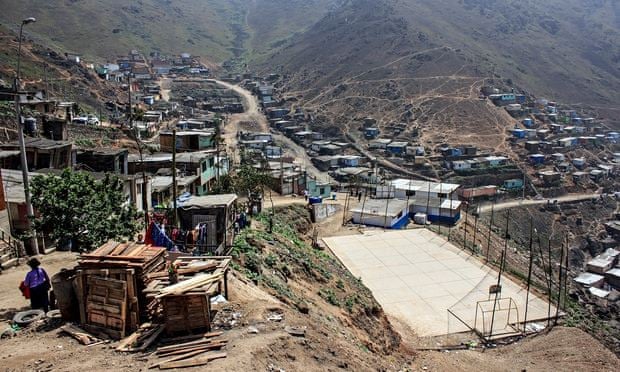Using solar to give Honduran slum communities a voice in government
Using solar to give Honduran slum communities a voice in government
In Latin America, programmes to upgrade temporary houses reshape traditional solutions to poverty and city development
Priscila Azevedo Rocha
Friday 28 November 2014 07.00 EST

[font size=1]
Slum upgrading programmes focus on securing rights for dwellers and providing basic amenities. Photograph: Techo
[/font]
Latin America is known worldwide for being the land where the sun always shines, the beaches are like paradise and the party never ends. Despite the endless list of clichés that historically have characterised the region, inequality is staggering and mainly responsible for curbing development.
According to a report released by UN-Habitat, the slum population of the region adds up to 134 million inhabitants, representing 30.8% of the total population and equivalent to more than two times the total population of the United Kingdom (64.1 million). Roughly one in three people live under the poverty line, struggling to get by on less than $1.25 a day. The need for change is evident.
Slum upgrading programmes – that seek to design and manage urban networks within the slums in partnership with local NGOs and development organisations – are gaining strength. Instead of eradicating slums and moving inhabitants to other neighbourhoods of the city or to social housing, slum upgrading programmes focus on securing rights for dwellers, by regularising the tenure conditions of the settlements and providing basic amenities such as electricity and sewage. The ambition is to transform the slum into another district, integrated into the city, with proper transportation connections and services.
In La Lima, 152 miles north of Tegucigalpa, Honduras, Techo is working in partnership with the squatter settlements 17 de Enero and Las Rosas. Both of those communities lacked proper electricity, sewage and water connections. As part of a slum upgrading programme, electric solar panels have been installed on 50 houses, giving 225 people access to electricity. The 4-watts panels cost each family 300 Honduran lempiras (£8.85) and usually take up to three days to be installed by residents and Techo volunteers. The volunteers are also responsible for fundraising the extra costs, such as those incurred by transportating materials to the communities.
More:
http://www.theguardian.com/global-development-professionals-network/2014/nov/28/honduran-slums-solar-rights-dwellers-upgrading-development
